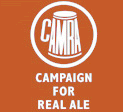Neptune wrote:But was not Fletch's sound highly influenced by the American sound?
I dunno. Did Fletch study with Jacobs? His use of a Holton is certainly consistent with that general approach. But his sound has always seemed rounder and smoother than Jacobs's sound.
Of course, at that time, the American sound was not homogeneous at all. Jacobs represented one camp, but there was also the Bell concept of a tighter, more focused sound, and the Alexander Power Sound. Jacobs's approach has grown since then, and equipment consistent with that approach is more available.
But since then, many British tubas players have gone a very different direction than most American orchestral players, or so it seems to me. The use of the Besson Sovereign Eb gets a different result than Americans playing a large contrabass. The sound concept on those Eb tubas is round and full, influenced by Fletch, but it isn't the same as what one gets from a large contrabass tuba. You have written about that yourself.
All orchestras, perhaps American most of all, are playing louder and louder. I think they are trying to compete with the aural intensity of recorded and amplified music, and audiences may have lost the appreciation for truly quiet music. Since the tuba is the bottom voice of the brass, it defines one extreme of color, and broadening those extremes is part of intensifying the sound. That has affected tuba playing a lot, it seems to me. Trying to compete with trumpet and trombone players who are playing louder and louder is part of it, too. I think back to the tuba sound in the 1937 recording of the RVW 4th, which is nearly unheard, versus late performances with tuba players using grand orchestral tubas. The change is pretty profound.
Rick "thinking Culbertson had the same effect in France, and possibly with the same Jacobsian roots" Denney





